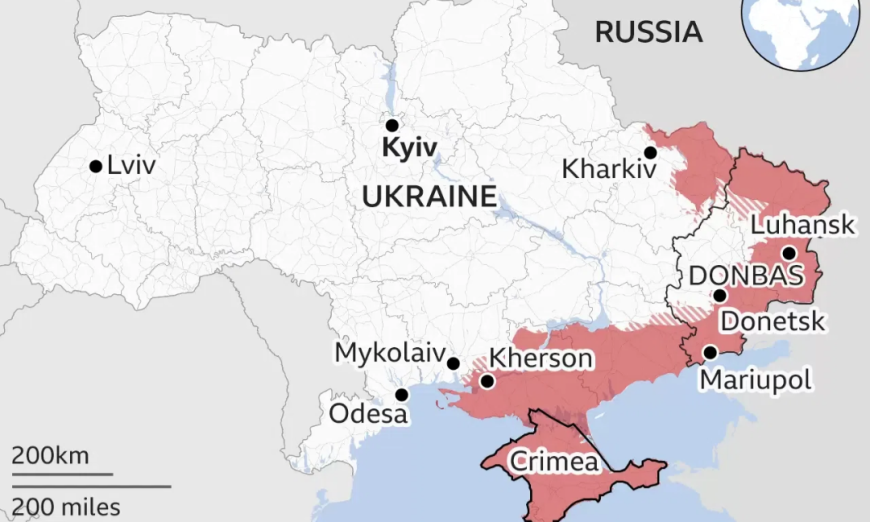Malofeev is a wealthy backer of Putin who’s helping fund the war effort including by sponsoring an army of volunteer soldiers, said in an interview.
He conceded that the scale of military aid to Kyiv from the US and its allies “has been far greater than anticipated.” Together with determined Ukrainian resistance, that means a grinding war that “will drag on at a slow pace” for at least months to come, he said.
Sanctioned Tycoon
The US Justice Department unsealed an indictment against Malofeev in April for violating sanctions first imposed on him for his role in Russia’s 2014 annexation of Crimea. At the time, the Treasury Department said he was “one of the main sources of financing for Russians promoting separatism in Crimea.”
While Russia since Feb. 24 has increased its grip on Donetsk and Luhansk from 30% to 75% of the territory of the two Ukrainian regions prior to 2014, according to London-based defense research group Janes, the offensive is currently making relatively little progress.
Russian troops are still fighting to complete the takeover of the port city of Mariupol, where a pocket of Ukrainian resistance is holed up in a giant steel plant after a brutal weeks-long siege that leveled much of the city to ruins.
The Kremlin is preparing for a long, grinding campaign, according to people close to the leadership. With the US and its allies steadily increasing sanctions – reaching the Russian oil and gas exports that had long been thought too vital to touch – Moscow sees little reason to compromise. A Russian general said in late April that Moscow’s goals are now to take over the south as well as the east of Ukraine, which would cut off the country from the sea and its main export routes. No senior official has publicly endorsed that ambition, however.
Privately, some Russian officials concede the situation on the ground in the occupied territories is chaotic and they haven’t yet been able to assert control and impose order.
Kherson, where a military-civilian administration headed by a former mayor of the region’s main city was appointed by Russia on April 26, will follow Luhansk and Donetsk in joining Russia, Malofeev said. At a minimum, the Kremlin should incorporate the entire southeast of Ukraine, a chunk of territory historically known as Novorossiya (New Russia) that Czarist Russia captured from the declining Ottoman Empire in the 18th century, he said.
Ambitious Goals
Without its ports and main export routes for wheat, coal and metals, “Ukraine will lose any economic independence,” Malofeev said.
He’s boosting propaganda and dispensing largess. His pro-Kremlin channel, Tsargrad, has correspondents fanning out across newly-occupied areas including Mariupol and Kherson, and he’s donated a billion rubles ($15 million) to buy generators, medicines, minivans and other supplies. The Russian government is also preparing to fund reconstruction, he said.
Alexander Borodai, a Russian legislator who briefly served as head of the Donetsk People’s Republic and leads the “volunteer” force set up by Malofeev fighting alongside Russian troops, said the Ukrainian state should be “dismantled and disappear from the face of the Earth.”
At least for now, it’s not clear that Russia is capable of exerting full control of Donetsk and Luhansk. In the south, Odesa, the biggest Ukrainian port, remains firmly in Ukrainian hands. Kharkiv, the major north-eastern city, is also holding out.
Zelensky has urged Ukrainians in occupied territories not to cooperate with Russian authorities.
Even in Kherson, which fell with little fighting in March, Russian forces still don’t have total authority. Russia has set up filtration camps targeting men of military age or who served in the country’s security forces, Ukrainian officials said.
The city has seen protests with participants holding up Ukrainian flags. The region’s Kyiv-loyal governor, Hennadiy Laguta, in mid-April visited an area freed by Ukraine’s army and oversaw the restoration of electricity, police patrols and health services. Schoolchildren in the Kherson region are continuing to study in Ukrainian schools online.

